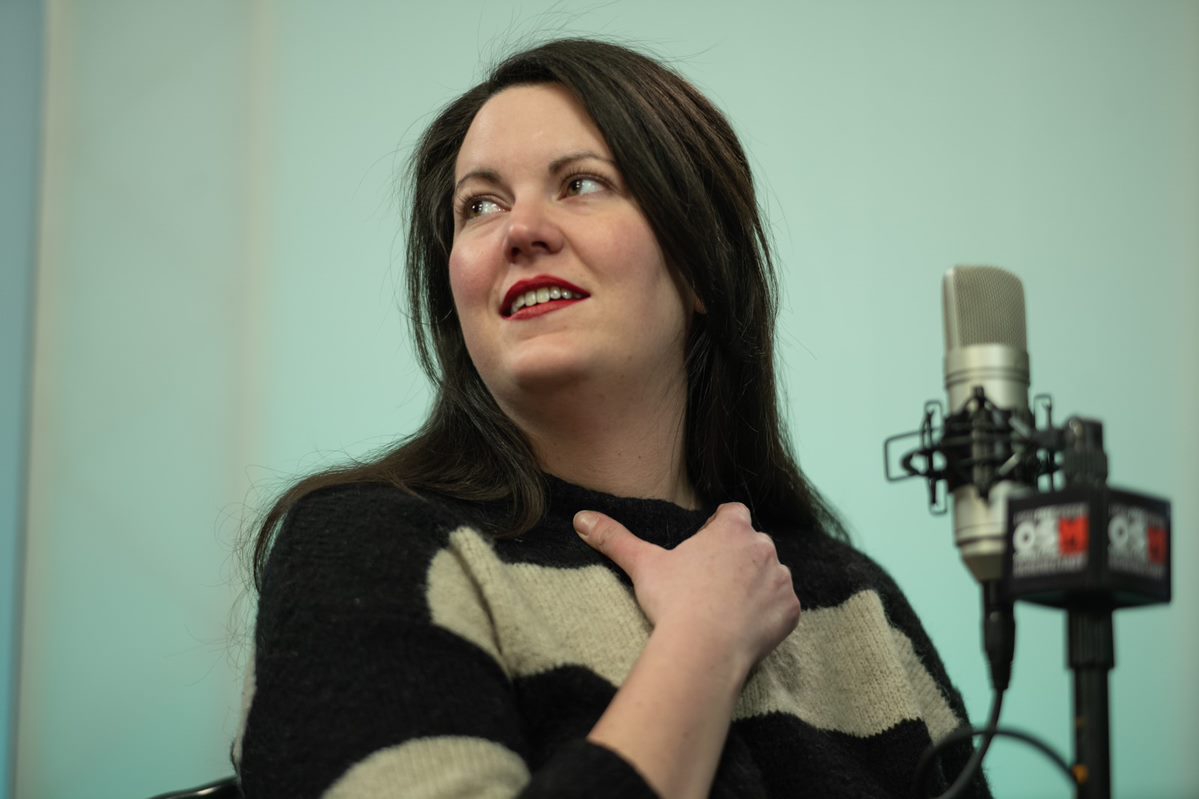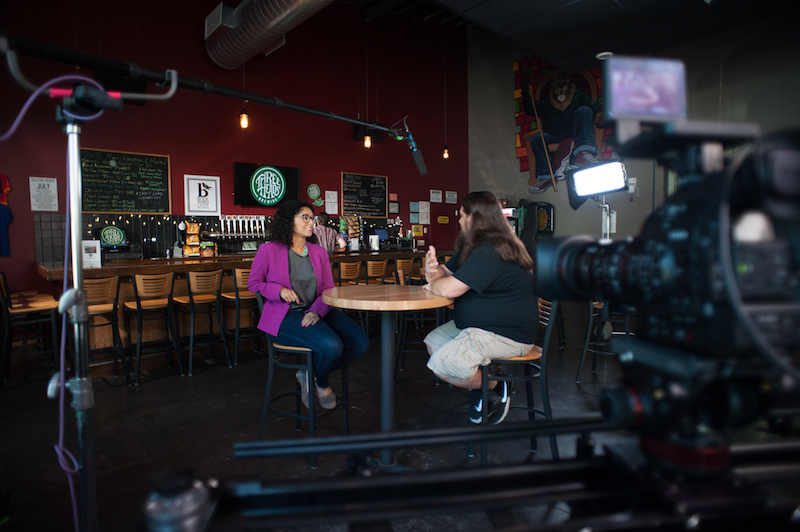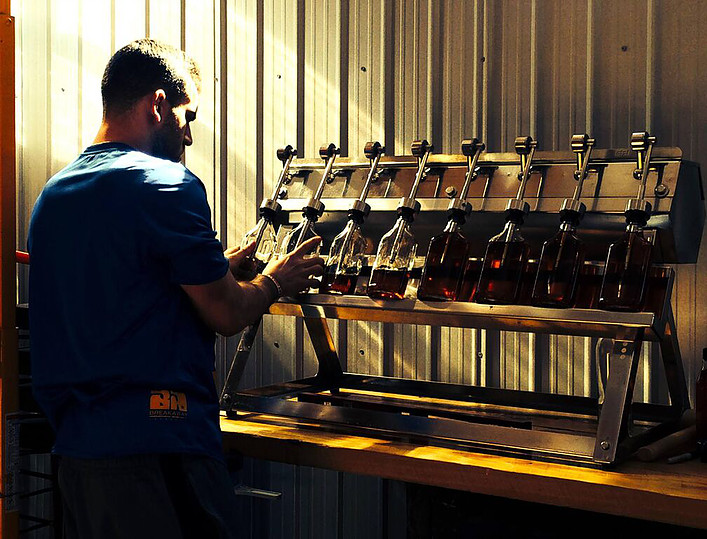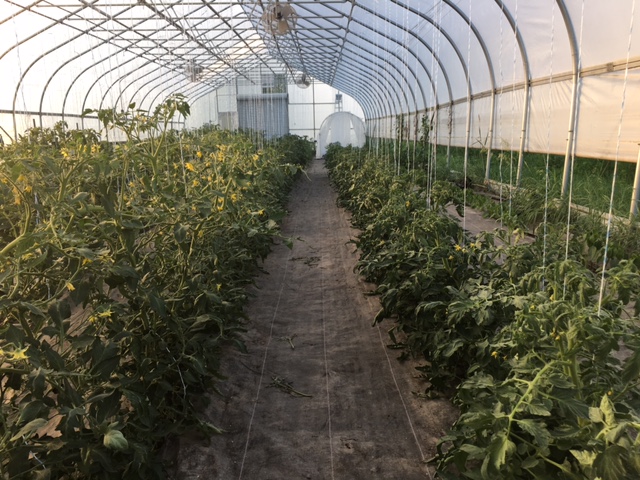A few weeks ago I found myself squarely facing a deep bout of the “what ifs?” You know them, you’ve experienced them, too: what if things don’t turn out as planned? What if they do turn out as planned? What if the underlying conditions of this situation I’m facing aren’t how they appear on the surface?
My “what ifs” came at the grocery store, a place I’m in far too often as a food-focused journalist and cooking instructor. I’ve had plenty of curious instances at a local Price Chopper or Hannaford. Once, an elderly man whacked me in the arm standing next to the alliums, asking me if the thing (a shallot) he was holding in his hand was garlic. (Clearly not.) He proceeded to tell me that this was the first time in his life he has grocery shopped alone and the first time in 60-plus years of being married to his wife that he was cooking her dinner. I’m not sure of the circumstances surrounding that—maybe a romantic gesture, or perhaps illness kept her from the household cooking—but I took the time to help him find a few more items on his list. What if he never found the right products? I hope my small attempt to help prevented any ingredient-based derailment at home.
Another time, a woman who only spoke Arabic approached me with her young sons in the coffee aisle to ask me—translated via her eldest son, probably about 12 years old—which coffee was the most caffeinated. Her uncle was coming to visit, and she wanted to make sure she had the right strength of coffee for him. (Thankfully Death Wish Coffee had recently hit grocery shelves, so the choice was easy.)
But back to a few weeks ago, when I was at a local Price Chopper in Albany. I had just a few minutes between meetings to grab a small basket of groceries to bring home for dinner that night, and although there was only one lane open in the check-out, the wait to scan-and-pay was limited by just one customer ahead of me. A late middle-aged woman who was meticulously scanning the store flyer to ensure her products were ringing up at the right price. The groceries on the conveyor belt seemed innocuous enough. A bag of oranges. Milk. Cereal. Two boxes of Freihofer doughnuts in the standard plain, powdered and cinnamon trinity. All in all, about $30 worth of food. She dickered with the clerk on the price of the oranges, and the BOGO promotion on the doughnuts. With frustration, she scanned her savings card, and then slid her EBT card, which allowed her to use her access and pay with her Supplemental Nutrition Assistance Program (SNAP) benefits from the government. A grinder error beep from the register issued the dreaded “declined—lack of funds” message. The woman tried again. No luck. A third time punched in by hand netted the same result. The woman pleaded with the clerk, who maintained a pleasant attitude but was quickly losing patience, that her benefits had just been replenished earlier in the month, and could she please try again.
And here is where my “what ifs” kicked in. What if this woman were lying, and she just overspent and was looking for a quick way around the system? (Honestly, that was my first, but fleeting, thought.) What if she is telling the truth, and outside factors, like the rampant government shutdown, had affected the transfer of benefits to her account and card? What if I miss my next meeting because of this? What if the sudden line of frustrated customers behind me starts to make their frustration explicit?
What if I was in her position?
When I tell people I’m a food writer, the common assumption is that I’m a critic, an arbiter of taste. I’m sure the words I’ve written over the decade I’ve been writing have certainly suade people in how, what and where they eat, but I’d never insist that my opinion or reportage should be held to a caliber known as law. More importantly, though, my job should be about exploring and explaining all the facets in which food touches our lives, from the daily routine right down to developing empathy.
So, using the empathy I try to promote, I offered to pay for her grocery tab. I had the money, and at that point it felt as kind to do it for her as it did to alleviate the situation for the clerk and the customers behind me. Utilitarian calculus. She said thank you and quickly whisked her groceries away. In the end, it was a very minor act to keep life moving forward for all involved, but it reminded me of why I got into this business in the first place: to find people where they already are and help them understand the nuances and complications of the world through something we can all relate to, like food.
My hope for this column is that it is a chance to find answers to the “what ifs” and show how food — combined with good storytelling — can somehow provide resolution to the pressing issues surrounding us. And if not, in the very least, maybe we will all walk away with a few more ideas of what to eat next.
Deanna Fox is a food and agriculture journalist. @DeannaNFox www.foxonfood.com





